Where Americans Can Travel in Asia — A Country-by-country Guide
A current list of where U.S. travelers can visit in Asia and what to know before going.
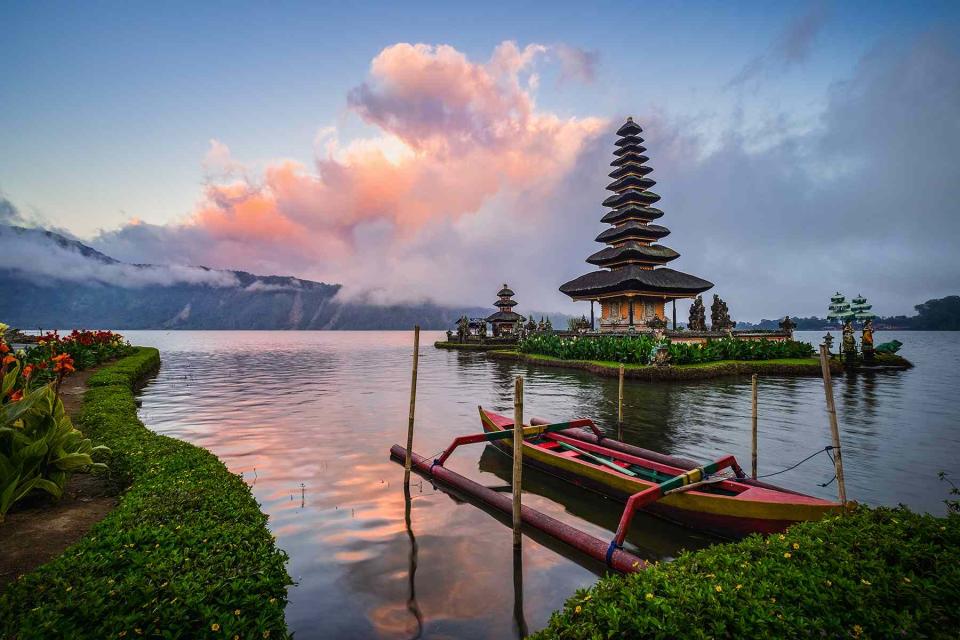
Countries all around the world are opening to tourism, and while some in Asia have been slightly slower than others, many are starting to open up and dropping pandemic-related travel restrictions.
Travelers can eat their way across Thailand, which has eliminated all COVID-19-related travel restrictions, relax on the gorgeous beaches in Indonesia or the Maldives, step into history in Vietnam, and even explore the bustling cities in Japan, which is welcoming independent travelers in October.
However, while many countries continue to roll back restrictions, some have implemented strict testing and contact tracing efforts for tourists.
These are the countries in Asia that welcome American travelers, and the rules visitors need to know before going.
Bangladesh
Bangladesh welcomes American travelers, according to the U.S. Embassy in Bangladesh. Fully vaccinated travelers are exempt from pre-arrival testing, while unvaccinated travelers must show proof of a negative COVID-19 PCR test taken within 72 hours of their departure. Children under 12 are exempt from testing.
All travelers must complete a Passenger Health Declaration Form within three days of arrival in the country.
Bhutan
Bhutan has opened to tourists without quarantine and does not require proof of vaccination to visit, according to the Tourism Council of Bhutan. Travelers 12 and older may be subject to random PCR testing upon arrival.
Bhutan charges a $200 daily tourism tax, which it calls a Sustainable Development Fee (SDF) that is intended to fund social programs, infrastructure, and environmental protections.
Brunei
This small Southeast Asian country welcomes travelers and does not require them to be vaccinated or get tested before coming, according to the government.
Travelers must have proof of travel medical insurance that includes COVID-19 coverage of at least BND $20,000 (about $14,042 USD).
Cambodia
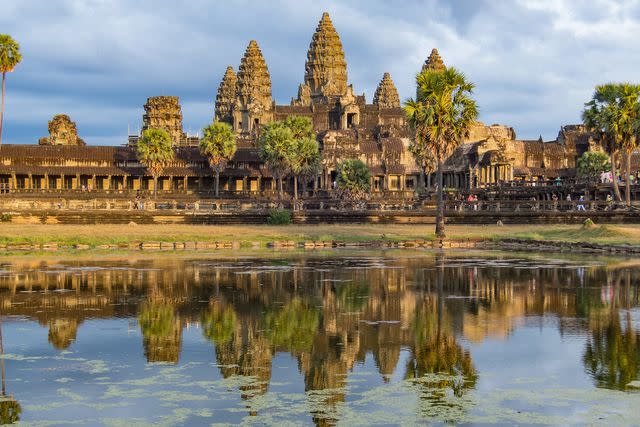
Cambodia welcomes both vaccinated and unvaccinated travelers without the need to get tested before coming, according to the U.S. Embassy in Cambodia. The country has also reopened its visa on arrival program.
Unvaccinated travelers must undergo a rapid antigen test upon arrival, according to the government and costs $5 USD.
China
Most of China remains closed to tourism, but Hong Kong recently eliminated its mandatory 3-day hotel quarantine and eased testing rules, now requiring travelers to be vaccinated and undergo a rapid antigen test 24 hours before their departure, according to the Hong Kong Tourism Board. Travelers must also undergo a PCR test on day 2, day 4, and day 6 after their arrival as well as undergo a rapid antigen test each day for seven days.
In lieu of the hotel quarantine, travelers must self monitor for symptoms for three days. They will be able to go outside during this time but restricted from certain places like bars and restaurants.
India
India started allowing regularly scheduled international commercial flights to resume flying to the country in March. All travelers to India must show either proof of vaccination or proof of a negative COVID-19 PCR test taken within 72 hours of their trip, according to the Ministry of Health and Family Welfare.
Travelers must also complete a self-declaration form online before traveling.
Indonesia
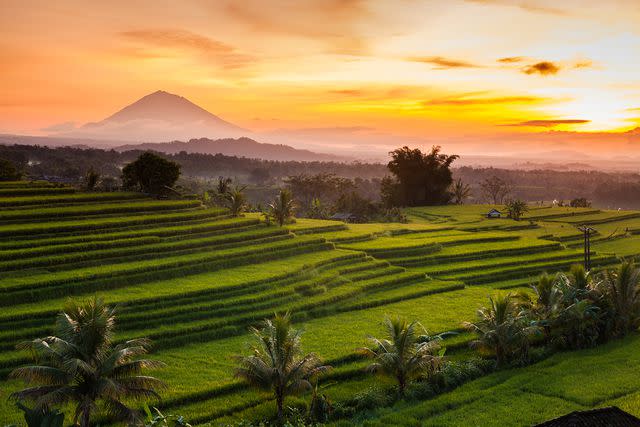
Indonesia has opened to vaccinated tourists, according to the U.S. Embassy & Consulates in Indonesia.
Additionally, vaccinated domestic travelers must either show proof of a booster shot, proof of a negative rapid antigen test taken within 24 hours of traveling, or proof of a negative PCR test taken within 72 hours of traveling to travel within Indonesia.
Japan
Japan first reopened to escorted group tourism in June, but plans to welcome independent travelers once again in October. Travelers will be required to show proof of vaccination and a booster or show proof of a negative COVID-19 test taken within 72 hours of their departure to enter, according to the Japan National Tourism Organization.
Laos
Laos has opened to tourists and allows both vaccinated and unvaccinated travelers, according to the International Air Transport Association’s destination tracker. Vaccinated travelers are exempt from testing, while unvaccinated travelers must show proof of a negative COVID-19 rapid antigen test taken within 48 hours of their departure. Travelers under 12 are exempt.
Malaysia
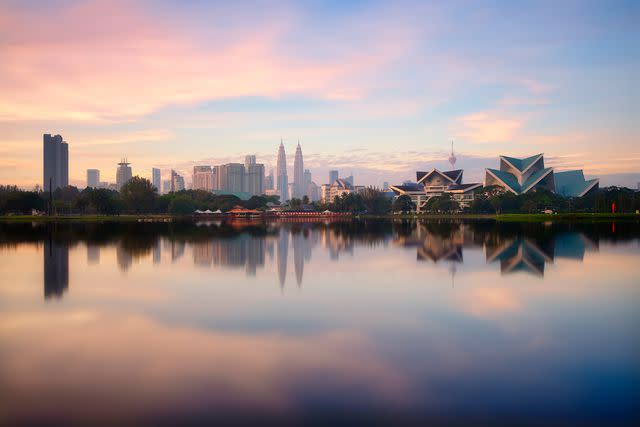
Malaysia lifted all COVID-19-related entry requirements on Aug. 1, according to the U.S. Embassy in Malaysia.
Maldives
The Maldives welcomes travelers from all over the world, including the U.S., and does not require visitors to get tested before coming, according to the government. All arriving and departing passengers must complete a Traveler Declaration form within 96 hours of their flight.
Myanmar
Myanmar allows travelers to enter the country on commercial flights, according to the U.S. Embassy in Burma. Travelers must show either proof of vaccination and proof of a negative rapid test taken within 48 hours of their arrival, or proof of a negative PCR test taken no more than 48 hours before their arrival if the traveler is unvaccinated. Children under 12 are exempt.
Travelers must also purchase COVID-19 medical insurance from Myanma Insurance.
Mongolia
Travelers are allowed to enter Mongolia without any pre-arrival testing or quarantine measures in place, regardless of their vaccination status, according to the U.S. Embassy in Mongolia. Travelers must fill out a medical declaration form upon arrival at the border checkpoints.
Nepal
Nepal welcomes travelers and offers visas on arrival, regardless of vaccination status, according to the U.S. Embassy in Nepal. Arriving travelers must show proof of full vaccination or proof of a negative COVID-19 PCR or NAAT test taken within 72 hours of their departure.
Philippines
The Philippines welcomes vaccinated travelers, including from the U.S., and requires them to either show proof of having received a booster dose, according to the government, or show proof of a negative PCR test taken within 48 hours of their departure or proof of a negative laboratory-based antigen test taken within 24 hours of their departure.
Children under 12 traveling with their fully-vaccinated parents are exempt from the vaccination requirement.
Singapore
Singapore welcomes all travelers, regardless of their vaccination status, according to the Singapore Tourism Board. Vaccinated travelers (and unvaccinated children under 12) are exempt from all pre-departure tests, on-arrival tests, quarantine, and entry approvals. Unvaccinated visitors 12 and older must arrive with proof of a PCR or rapid antigen test taken within two days of their departure and have travel insurance that covers COVID-19 with at least $30,000 of medical coverage.
Travelers must download the TraceTogether app. Three days before their departure, travelers must submit an SG Arrival Card and e-health declaration through the Immigration & Checkpoints Authority (ICA) website.
South Korea
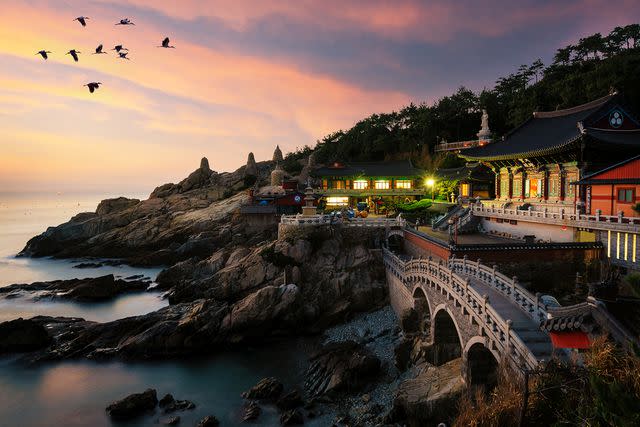
South Korea welcomes American tourists without quarantine, regardless of their vaccination status. Travelers no longer have to undergo any pre-departure or on-arrival testing, according to the Korea Tourism Organization.
Sri Lanka
Sri Lanka allows fully vaccinated travelers to enter the country quarantine-free and without any pre-arrival testing, according to the U.S. Embassy in Sri Lanka.
Unvaccinated travelers can also be exempt from quarantine, but must show proof of a negative PCR test taken within 72 hours of their trip or a negative rapid antigen test taken within 48 hours of their trip, according to the tourism site. Children under 12 are exempt from testing.
Thailand

Thailand has eliminated all pandemic-related entry requirements, welcoming all international travelers, including from the U.S., according to the Tourism Authority of Thailand. Travelers no longer need to show proof of vaccination or proof of any testing to enter.
Vietnam
Vietnam welcomes travelers to the country and no longer requires them to arrive with a pre-departure COVID-19 test, according to the Vietnam National Administration of Tourism. Travelers must purchase medical or travel insurance that covers COVID-19 with a minimum coverage of $10,000.
Alison Fox is a contributing writer for Travel + Leisure. When she's not in New York City, she likes to spend her time at the beach or exploring new destinations and hopes to visit every country in the world. Follow her adventures on Instagram.
For more Travel & Leisure news, make sure to sign up for our newsletter!
Read the original article on Travel & Leisure.

